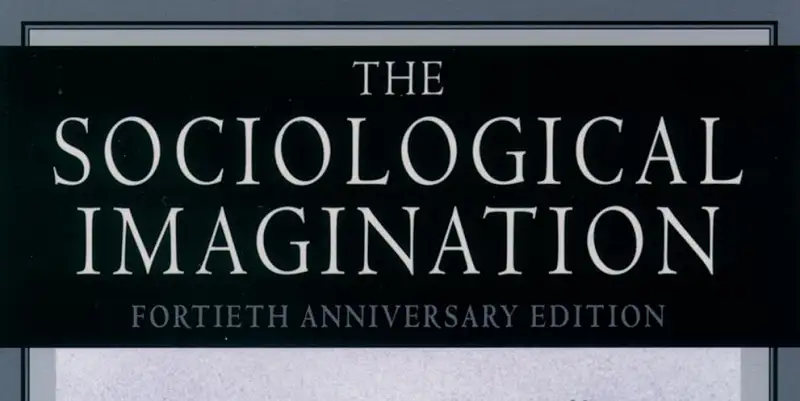Table of Contents
- Defining the Sociological Imagination
- The Significance of the Sociological Imagination
- Applying the Sociological Imagination
- Challenges and Critiques
- Conclusion
- Think!
- Essay Suggestions
- Research Suggestions
- Further Reading
The concept of the sociological imagination, introduced by C. Wright Mills in his 1959 book “The Sociological Imagination,” is a cornerstone of sociological thought. It provides a critical framework for understanding the relationship between individual experiences and larger social structures. This essay will outline and explain the sociological imagination, highlighting its significance, components, and applications in sociological analysis.
Defining the Sociological Imagination
Conceptual Foundations
The sociological imagination is the ability to see the connection between personal experiences and broader social forces. Mills posited that individuals often feel trapped in their personal circumstances, unable to see the larger social context that shapes their lives. The sociological imagination enables individuals to shift from viewing their problems as purely personal to understanding them as part of larger social processes. This perspective encourages a more profound comprehension of how historical, cultural, and structural factors influence individual behavior and societal outcomes.
Key Components
Historical Context
Mills emphasized the importance of understanding the historical context in which individuals live. This involves recognizing how historical events and societal changes impact personal lives. For instance, the economic conditions of a particular era can shape individuals’ career opportunities, family structures, and educational achievements.
Social Structure
Social structure refers to the organized patterns of social relationships and institutions that make up society. The sociological imagination requires an understanding of how these structures influence individual behavior and opportunities. For example, social class, gender, and race are structural components that affect individuals’ access to resources and power.
Biography
The biographical aspect of the sociological imagination involves examining individual lives within the context of larger social forces. This means understanding how personal experiences are shaped by social contexts and how individuals, in turn, influence society. For instance, examining how a person’s upbringing, education, and social networks affect their life choices and chances.
The Significance of the Sociological Imagination
Critical Thinking and Awareness
Get the full article AD FREE. Join now for full access to all premium articles.
View Plans & Subscribe Already a member? Log in.





